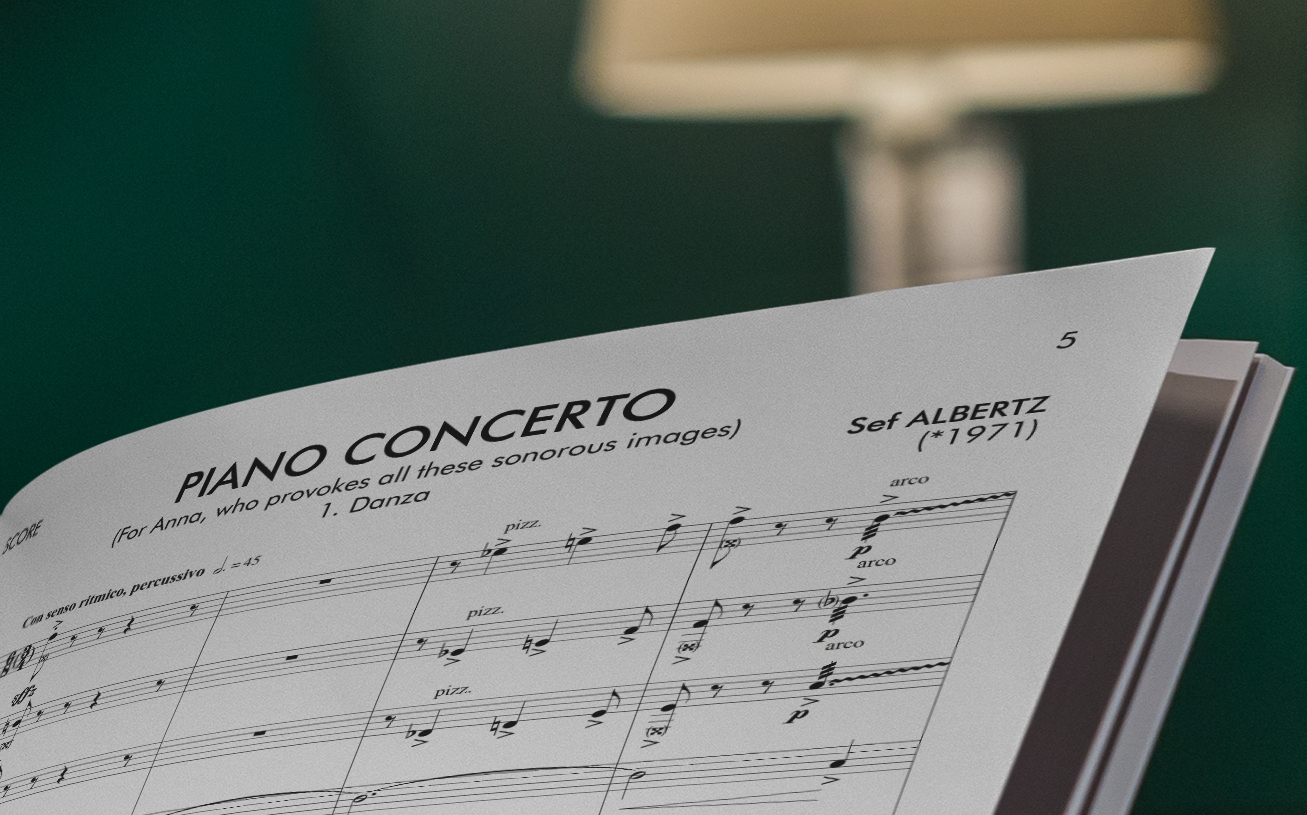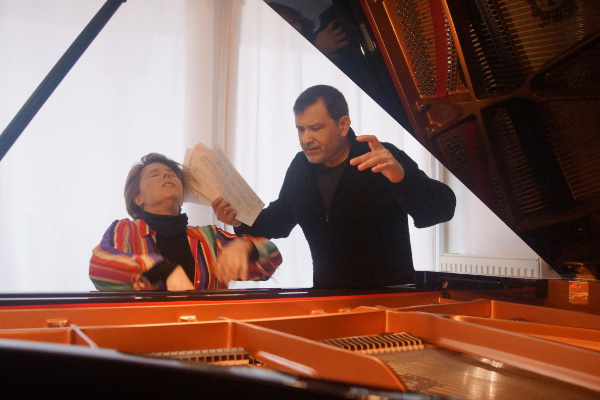
Sef Albertz' Piano Concerto | Work insights
A skillful dramaturgical connection to a fascinating musical world, a delightful combination of progressive and traditional elements [...] southern temperament and profundity
This is how the music of our composer Sef Albertz is praised.
His projects have been commissioned and funded, among others, by Instituto Cervantes, Junta de Andalucía, Kulturstiftung des Freistaates Sachsen, MDR Sinfonieorchester, Musikfonds, Stuttgart University, UNESCO.
Albertz's music has received numerous world premieres and performances in many countries throughout Europe and the Americas.
On June 14th 2016, for example, pianist Anna-Maria Maak premiered an entire programme of concertante works by Sef Albertz, including his Piano Concerto, with the MDR Symphony Orchestra as part of the 'MDR Festival of Light' in Leipzig. “A great composer...a fantastic interpreter...a powerful work”, expressed Kristjan Järvi, the conductor of the evening.
Sef Albertz – Piano Concerto
Instrumentation details: Str. (12 · 10 · 8 · 6 · 4 [with D as the lowest string]
Year of composition: 2014
World premiere: June 16th, 2016 at the ‘Leipzig MDR Festival of Light’ with soloist Anna-Maria Maak and the MDR Leipzig Radio Symphony Orchestra under Kristjan Järvi.
Dedication: „For Anna, who provokes all these sonorous images”
Work introduction by Anna-Maria Maak
Before composing his first piano concerto, Sef Albertz created a version of the Chaconne in D minor BWV 1004 by Johann Sebastian Bach in a first-ever version for piano and strings. The Piano Concerto followed in a very natural way; it was like a kind of consequence for him. Thus, the two works have structural and harmonic parallels and are dramaturgically suited to be performed together as part of a concert evening.
Anna-Maria Maak & Sef Albertz
So Baroque formulas are mixed with Ibero-American musical structures, or patterns from the most recently urban culture coexist with folk elements. In the same way, harmonic developments, including textures of jazz, world music and classical romantic music become convincing in an own new context. Finally, it has been possible to create a symbiosis - a fusion - of different styles, which as a whole reflects the composer's own voice.
The Piano Concerto also involves the use of extended techniques, where instrumentalists must clap, snap with fingers, rubbing hands, playing ‘Col Legno Battuto’, stamp on the floor, tapping on the wood of the instrument or use the flat of the hands and forearm to produce a tone cluster, etc.
The Piano Concerto is intended to be chamber music. The performance is possible with piano and string quartet or quintet or extended string instrumentation (3.3.2.2.1).
